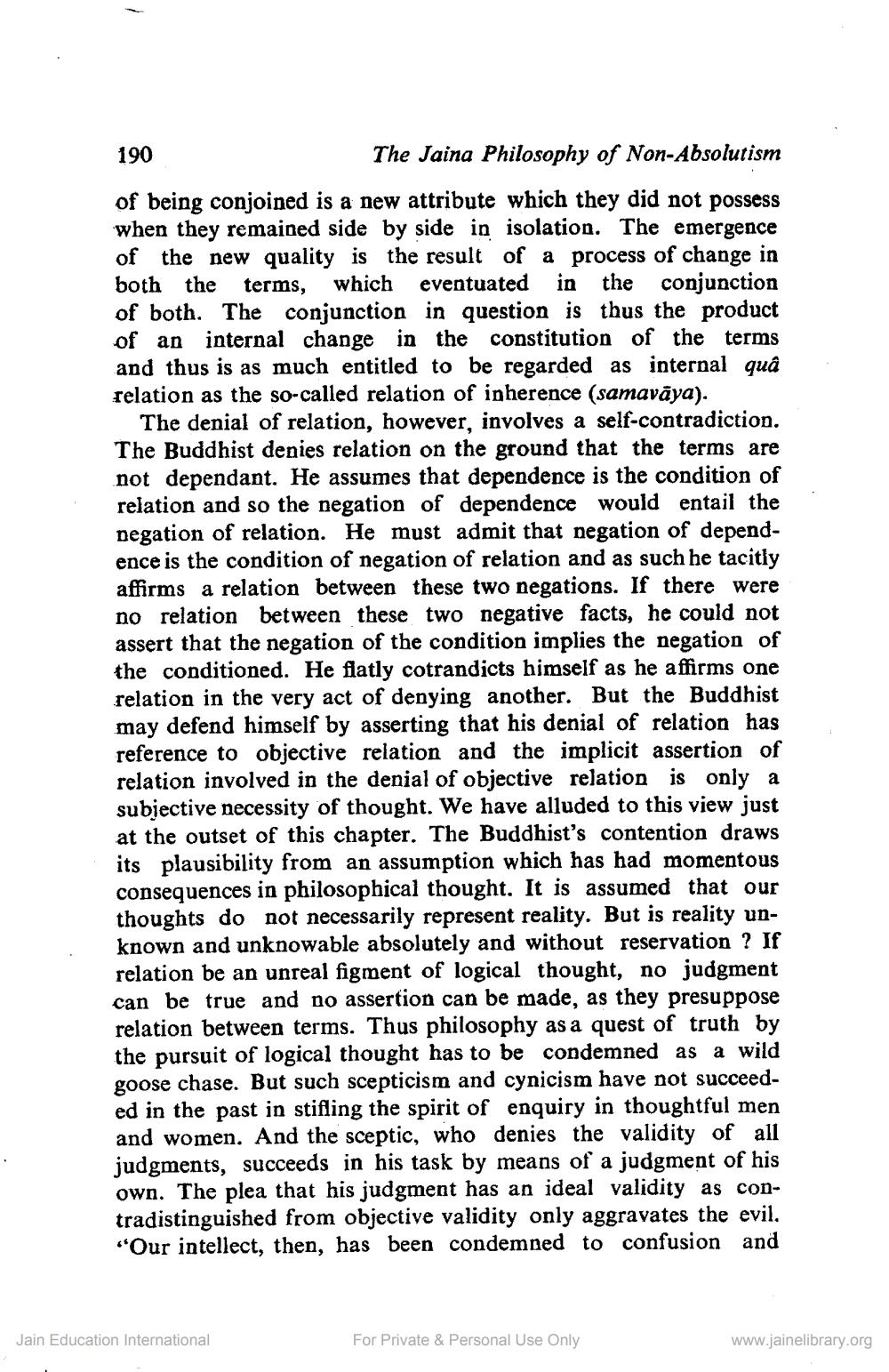________________
190
The Jaina Philosophy of Non-Absolutism of being conjoined is a new attribute which they did not possess when they remained side by side in isolation. The emergence of the new quality is the result of a process of change in both the terms, which eventuated in the conjunction of both. The conjunction in question is thus the product of an internal change in the constitution of the terms and thus is as much entitled to be regarded as internal quâ relation as the so-called relation of inherence (samavāya).
The denial of relation, however, involves a self-contradiction. The Buddhist denies relation on the ground that the terms are not dependant. He assumes that dependence is the condition of relation and so the negation of dependence would entail the pegation of relation. He must admit that negation of dependence is the condition of negation of relation and as such he tacitly affirms a relation between these two negations. If there were no relation between these two negative facts, he could not assert that the negation of the condition implies the negation of the conditioned. He flatly cotrandicts himself as he affirms one relation in the very act of denying another. But the Buddhist may defend himself by asserting that his denial of relation has reference to objective relation and the implicit assertion of relation involved in the denial of objective relation is only a subjective necessity of thought. We have alluded to this view just at the outset of this chapter. The Buddhist's contention draws its plausibility from an assumption which has had momentous consequences in philosophical thought. It is assumed that our thoughts do not necessarily represent reality. But is reality unknown and unknowable absolutely and without reservation ? If relation be an unreal figment of logical thought, no judgment can be true and no assertion can be made, as they presuppose relation between terms. Thus philosophy as a quest of truth by the pursuit of logical thought has to be condemned as a wild goose chase. But such scepticism and cynicism have not succeeded in the past in stifling the spirit of enquiry in thoughtful men and women. And the sceptic, who denies the validity of all judgments, succeeds in his task by means of a judgment of his own. The plea that his judgment has an ideal validity as contradistinguished from objective validity only aggravates the evil, "Our intellect, then, has been condemned to confusion and
Jain Education International
For Private & Personal Use Only
www.jainelibrary.org




